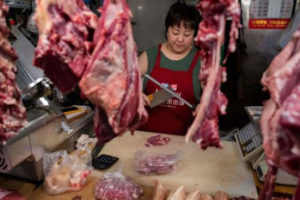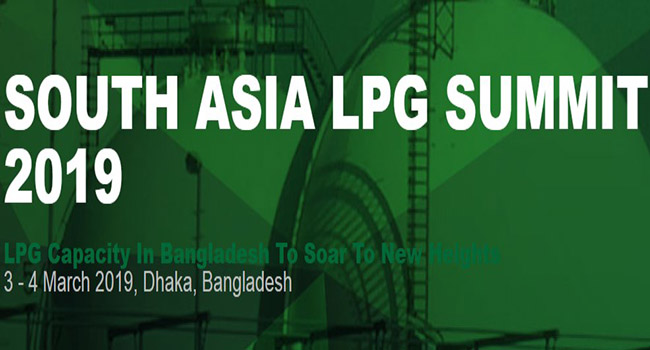Flying with gut-churning force over miles of charred bush land, the military plane had a vital load to deliver: 500 gallons of fuel, to help power a town cut off from the world.
On the ground below, residents had become desperate for the suddenly scarce resource, and some were taking their frustration out on gas station attendants forced to ration it. With the only road in or out blocked for two weeks by fallen and smouldering trees, the usually laid-back beach town, Mallacoota, had grown tense with the hardships that come with isolation.
“People are starting to get angry and frustrated with the lack of supplies, being stuck here and the power is still off,” said Tracey Hargreaves, the owner of a cafe on the main street. To keep business going, she has had to serve long-life milk and carefully preserve her pastries. “It’s surreal,” she said.
Since wildfires began ravaging huge expanses of Australia late last year, about a dozen communities have become isolated to some degree, authorities say. Some are completely cut off, accessible only by planes or helicopters, which have been dropping water, food and satellite phones, and even carrots for wildlife. Along the roads to others, arborists and engineers are working shifts of up to 14 hours to remove “killer trees” that are at risk of falling.
The crisis, which has stranded thousands of Australians, exemplifies the growing danger of inhabiting the world’s forests as climate change makes wildfires more frequent and intense.
“More people are living in high-risk bushfire areas, emergency services are stretched and the climate is rapidly changing,” said Andrew Gissing, an emergency management expert with the Bushfire and Natural Hazards Cooperative Research Centre, a nonprofit supported by the Australian government.
“Future crises are inevitable,” he added. “We must consider the prospect of a monstrous bushfire season, the likes of which we’ve never seen.”
A sense of that dystopian future has already come to Mallacoota, where images of thousands of people evacuating to a beach and a child leading his family to safety under amber skies focused worldwide attention on Australia’s calamitous bushfires months after they began.
In normal times, the town, surrounded by lush eucalyptus trees, is a haven for wildlife, including kangaroos and koalas. It has a magical quality: Many people return year after year for their summer vacations, and on New Year’s Eve people often take a dip in the lake, which lights up with bioluminescent microorganisms.
But this year, as one decade gave way to another, a fierce inferno swept through the community, destroying homes and severing power lines. Four days later, more than 1,000 people and their pets boarded naval ships that took them down the coast to safety. Many others, residents and vacationers alike, decided to remain.
Help has come slowly by air and sea, in the forms of water, fresh fruit and vegetables and, perhaps most critically, fuel.
Last weekend, after the C-27J Spartan military plane touched down at a small airport, air force personnel gathered their weight behind a giant bladder full of diesel fuel to roll it down the tarmac. This is the first time in Australia’s history that military reservists have been called up to respond to fires.
For now, supplies in Mallacoota remain limited. On Sunday, the gas station was still restricting sales to about 1.5 gallons per person — and only for generators, not cars. Neighbours have suspected others of siphoning fuel, or wasting it on their boats. It was rumoured that a truck had tried to break through the hazardous highway to deliver some, only to be forced back by authorities.
In recent days, parts of the community have been hooked up to large generators. But many people are still rationing power. They say they haven’t been watching much television; they are catching up with the news only occasionally, when they read or watch it on their phones.
Most cannot believe their small town has made global headlines, and become a symbol of many Australians’ hopes for a new government policy toward climate change.
“After all this happened, we heard we were on the news,” said Amy Preston, 23, whose family runs Beachcomber Caravan Park, which they protected during the blazes. Now, Preston said, “Mallacoota’s on the map.”
Others do not want to relive the trauma by watching repeated footage of their town in flames, said Michelle Gamble, who works at the gas station, which is also a tackle shop. On Sunday, customers offered the store’s workers hugs and empathy — rationing the town’s fuel had been an emotional roller coaster.
One woman came in asking for prawn bait, declaring that since it was the weekend, she was going fishing. Gamble encouraged her. “Good idea,” she said. “Go do something normal!”
Neighbors share food and power, opening up their homes to people who have lost theirs. The local pub, which is powered by generator to keep the beer cold and the jukebox rolling, has become one of the few places of reprieve.
There’s “nothing else to do,” Mia Kroger, 25, said as she sat with her friends on Saturday night, drinking beer in an eerie halo of normalcy.
“I’ve got nowhere to go, but the feelin
g of being stuck here is kind of intimidating,” she added. “It feels weird not to be able to leave town.”
Kroger’s friend Hannah Searl, 20, disagreed. “I know we’re stuck here, but I don’t feel stuck,” she said.
During the fires, Searl helped defend her family’s property by filling buckets from the swimming pool and leaping over her fence to douse the flames. “You couldn’t have gotten me out of here,” she said, “even if you tried.”
Around midnight, Searl climbed onto one of the bar tables and whistled: Her eldest sister had just had a baby in Arizona, and their mother, after being evacuated and taking flights through multiple cities, had made it to the birth. Soon after, the room was encircling Searl, dancing.
Even as progress has been made toward reconnecting cut-off communities, many challenges remain. The greatest is clearing a 90-mile stretch of highway from Mallacoota to the town of Orbost in southeastern Australia.
Darren McQuaid, an official in Orbost, said that among the thousands of miles of roads in the area, his team had managed to make only a fraction of them safe.
In recent weeks, authorities have warned residents of the dangers of trying to cut their own way out of their communities. Others who evacuated before the fires have been unable to return, some to assess the devastation of their burned-down homes.
By Sunday, the military had cleared roads north of Mallacoota just enough for some vacationers and residents to leave in a convoy of more than 60 cars, escorted by fire trucks and police vehicles.
Those leaving, and those staying behind, said they felt confident that new life would eventually sprout from the scorched landscape. But they acknowledged that fires could one day tear through the community again.
Yolande Oakley, an artist who moved to Mallacoota with her husband nearly two decades ago, said that on New Year’s Eve, she took her grandchildren to safety on the jetty, where she bundled them in wet towels. She gave them iPads and earplugs to block out the wail of exploding gas bottles and the roar of the approaching inferno.
“I didn’t want them to see what was to come,” she said.
Now, the Oakleys eat dinner by flashlight. They keep food cold in a gas fridge usually used for camping, and charge their phones with a battery connected to their car.
They don’t mind; they live in paradise, after all. But Oakley worries that climate change will bring more horrific scenes like the ones she and her family are still grappling with.
“If we don’t address that,” she said, “that’s the future for us.”





















